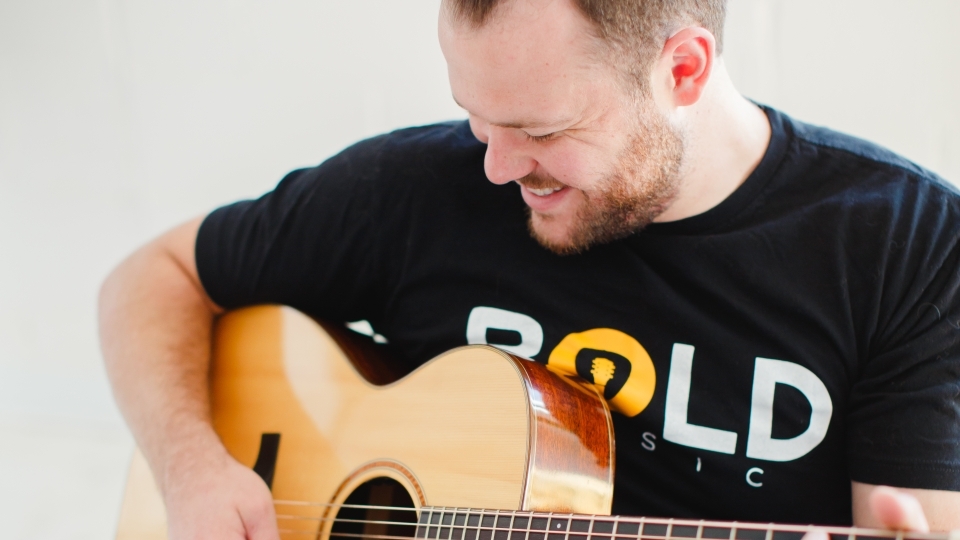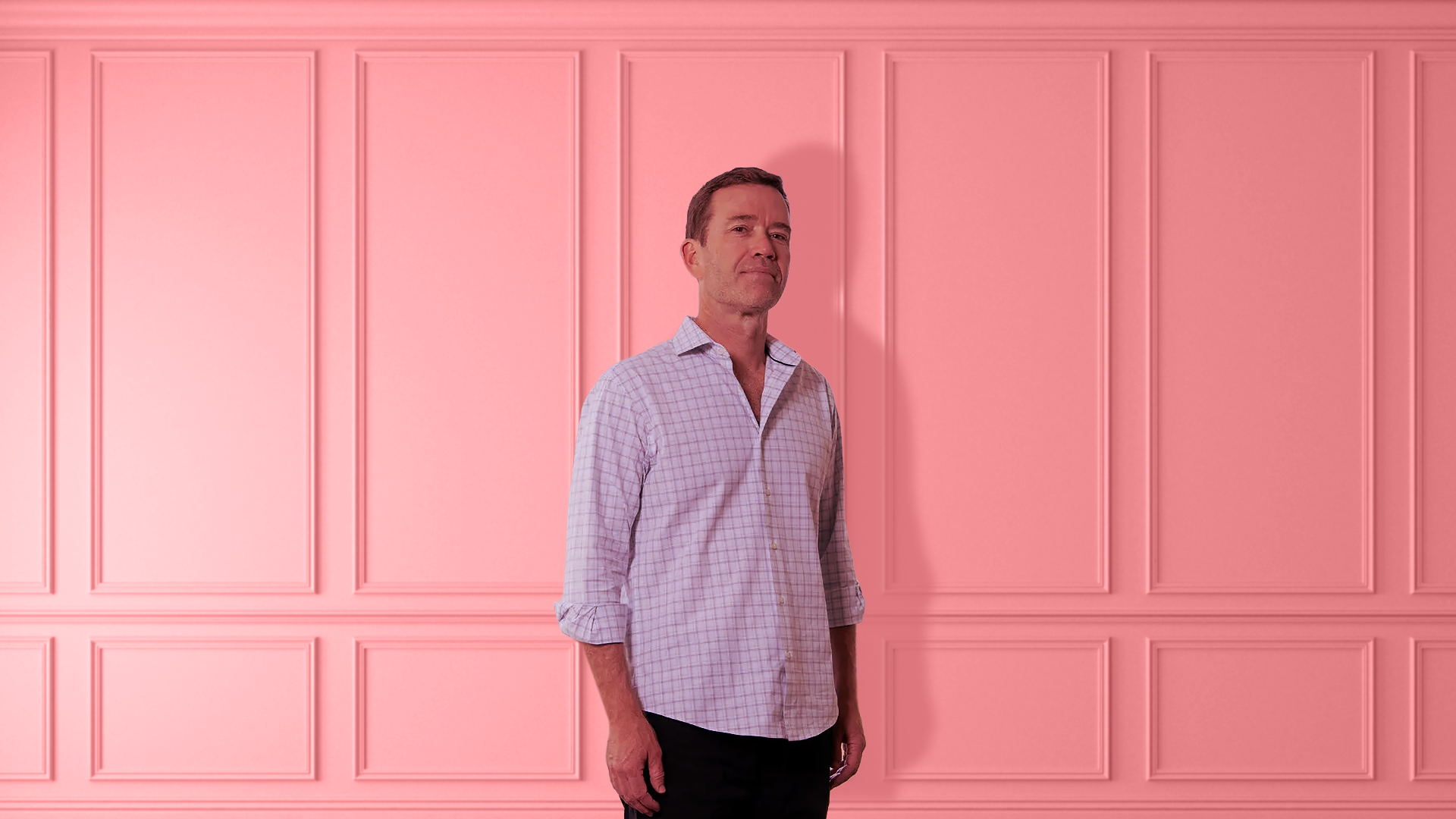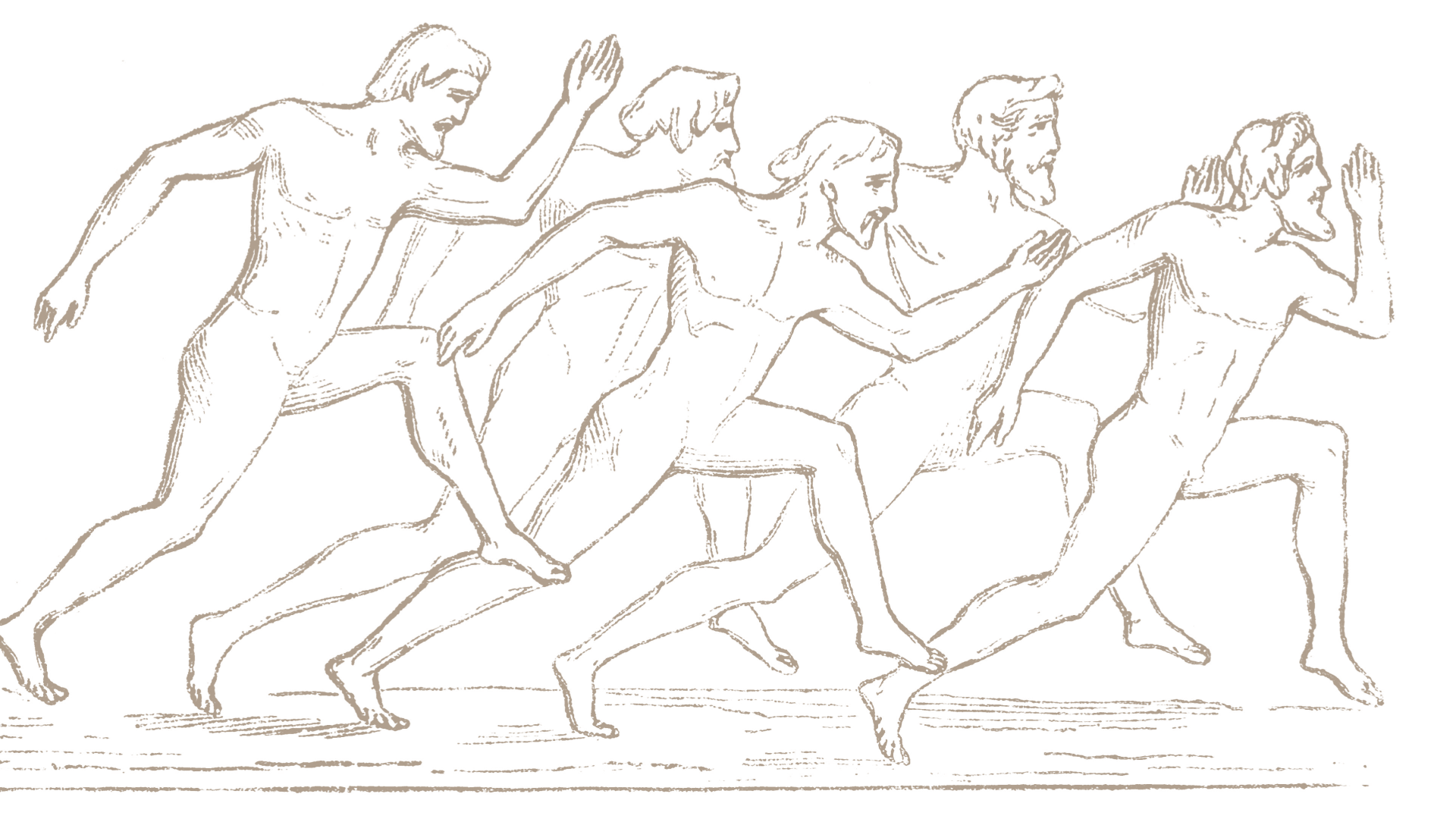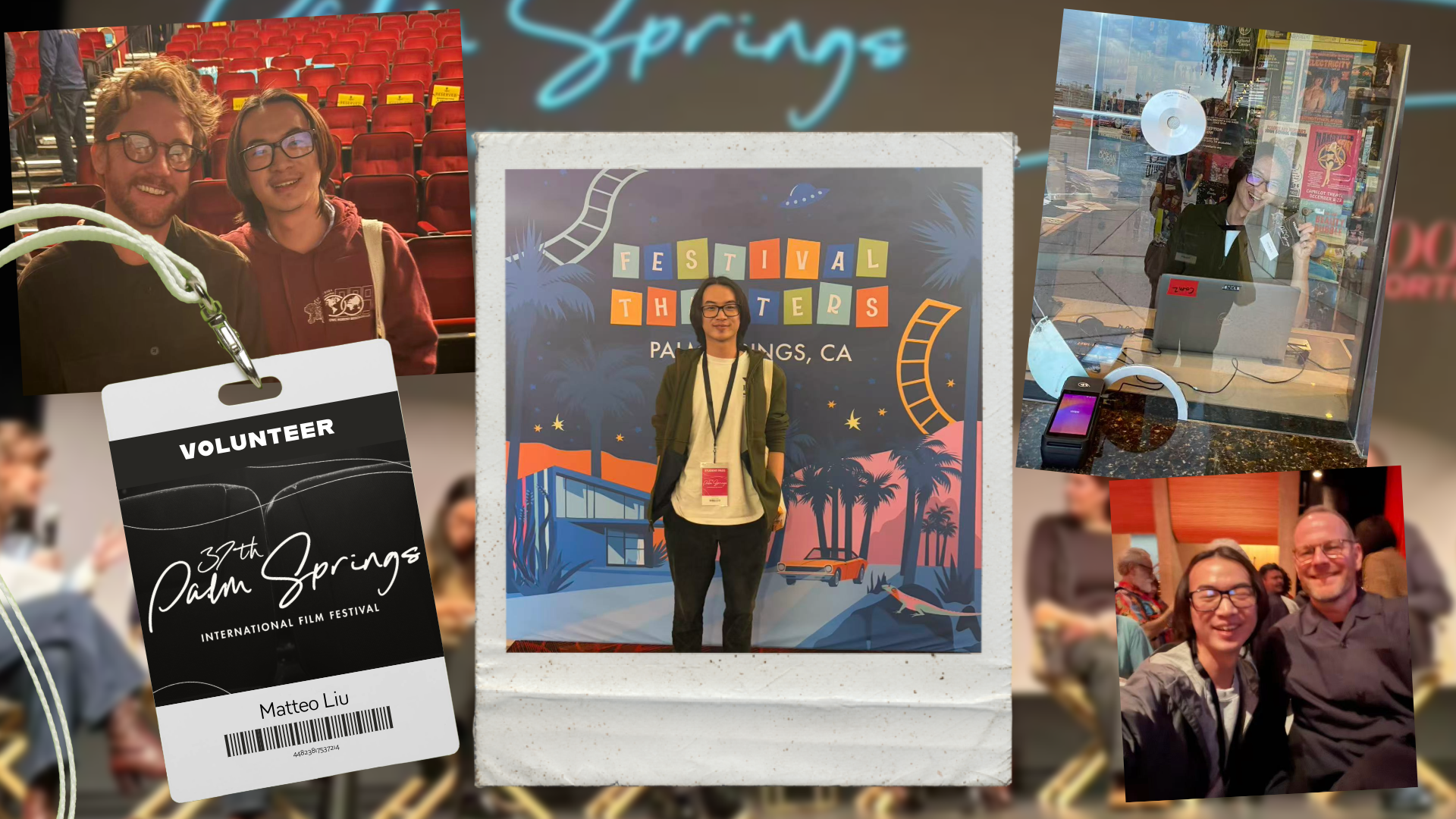Pandemic Pivot: Entrepreneurs Bob, Weave and Innovate
February 19, 2021
- Author
- Mary Elizabeth DeAngelis

George Ramsay ’13, Bold Music. Photo by Julia Fay Photography.
They’re the risk takers who bend their aspirations into viable businesses. Davidson College has a long history of turning out entrepreneurs. In honor of National Entrepreneurship Week, we caught up with a few alumni to talk about their businesses, and how they’ve adapted through COVID-19.
If your seven-year-old daughter wants to sing and play guitar like Taylor Swift, they’ve got a teacher for that.
Teenage son wants to bring down the house with his drums? They’ve got a guy for that, too.
George Ramsay and Dean Williams think of themselves as matchmakers. Their company, Bold Music, matches aspiring musicians of all ages with compatible teachers. There’s no racing across town after school to make a 4 p.m. appointment. Teachers—of guitars, drums, pianos, flutes and so much more—come to their students’ homes for lessons.
“That’s really the important thing, we do the research and we’re vetting the teacher and the family,” Ramsay said. “By the time a teacher walks into someone’s home, they’ll have a real good idea of what the family is like.”
Ramsay and Williams met at Davidson and bonded over their love for music. Ramsay, who majored in music, plays guitar and bass. He’s a member of a favorite Davidson College alumni band, “Otis Wedding” (formerly Green Eggs and Jam). As college students, he and Williams, a psychology major who plays piano and guitar, worked in a music store giving lessons to kids.
They decided they could make better music.
They started their business in 2013 as post-college housemates. Their living room became their company headquarters. Williams worked in a series of corporate jobs; Ramsay taught bass and guitar. Ramsay serves as Bold Music’s managing partner. They currently have about 400 students and 40 teachers on their rolls. Based in Charlotte, they launched their second Bold Music in Raleigh this past summer.
People have been taking and giving music lessons forever,” Ramsay said. “We’re making sure it’s done really, really well.
“Not having a physical location allows us to pay teachers well and spend money on marketing,” he added. “That puts a lot less financial pressure on us.”
One of their biggest challenges became one of their biggest strokes of luck. They schedule musicians with several appointments in the same area on the same day to save drive time. But busy kids and families will sometimes ask for a last-minute lesson time change. Ramsay proposed offering makeup lessons virtually. They trained the music teachers and introduced the students to their virtual model in early 2020.
“When the pandemic hit, we already had the portal built and were able to flip the switch in a week,” Williams said.
Their company now does a mix of in-person and virtual instruction.
Besides Ramsay, the company has two full-time employees who, among other things, help with marketing, scheduling and screening teachers and students to find the right match. They’re always looking for musicians to teach, with a caveat.
“We’re really strict about who we hire,” Williams said. “It’s not enough to be just a great guitar player; we want the guitar player who’s also a great teacher and role model.”
Starting their business so soon after college—the “what do you have to lose?” factor, Ramsay said—helped allay the fear of entrepreneurship. He urges others with a good idea and a sound business plan to consider the possibilities.
“Trying something new is scary and you may fail,” Ramsay said. “Do it anyway. Don’t let fear stop you from doing it.”
Endnote: Ramsay and Williams recently talked with Jay Hurt Hub Director Liz Brigham for the speaker series Hub and Spoke. Watch the interview.
Jill Marcus ’86: CEO, Co-Founder and Managing Partner of Something Classic and The Mother Earth Group
Jill Marcus has spent most of her career creating special culinary experiences, from 500-person couture weddings and galas with high-end clients like the Prince of Dubai, to her farm-to-table restaurants Halcyon and Fern, to take-home comfort dinners from the local grocery store.
She and her business partner, Karen Teed, started cooking out of their home kitchen for friends’ parties as a sideline, then quit their corporate jobs and began their own company in 1989. The company grew, surviving lows like the Great Recession of 2008 and highs such as catering for 15,000 guests at the 2012 Democratic National Convention.
A strong economy kept their food ventures booming, including James Beard-nominated restaurant Halcyon, Flavors from the Earth housed in the Mint Museum in uptown Charlotte. In late 2019 the company bought a 16,000-square foot USDA kitchen to prepare for more growth.
When the pandemic forced businesses to shut down, Marcus was out of the country and had to turn to Zoom for the heart-wrenching job of laying off 150 employees. The bad news kept coming, with more than 200 weddings and corporate events postponed or canceled. In December, the restaurant group closed Halcyon, celebrating its 10 years in business by hosting three weekends of dinners served in individual, candle-lit greenhouses.
Yes, there were moments of curl-up-in-a-ball despair. And worries about paying bills and the impact on their employees. It forced her and Teed to take a hard look at their businesses.
Their team talked about having been stretched too thin before the pandemic. About the holidays spent celebrating with clients and not their own families. And how much they worked, having too little time off.
It’s been painful, but they innovated to stay afloat.
Government grants for small businesses have helped, and “Davidson taught me to do the research and think critically,” Marcus said.
They started a Victory garden to grow their own herbs, garnish and produce. And now, they're entertaining several “Ghost Kitchen” concepts, producing take-out meals for virtual brands. Throughout the pandemic, The Mother Earth Group never abandoned one of their core values, to nourish their community. They’ve provided meals to their furloughed staff and those in need, Marcus said.
The big gatherings ended, but some went virtual and hired Something Classic to deliver cocktails, cheeseboards, and elegant small parties to attendees’ homes. The business took a more intimate turn by delivering creative dinner and drink experiences to private homes and micro-weddings. They celebrate everything from wanderlust dinners to Italian New Year's celebrations and Tiki Dinners to National Margarita Day.
“Every day’s a holiday at Something Classic,” Marcus joked.
Their recent Mardis Gras dinner featured New Orleans cuisine and Hurricane cocktails with beads and masks included.
Marcus' world travel excursions over the years have inspired their at-home-themed menus.
After all these years, it still brings me joy to bring great experiences to our clients.
“You can’t travel to Spain right now; but we can bring Spain to you with some authentic tapas, paella kits, and rosemary pomegranate sangria. People are tired of cooking for themselves and are looking for a new way to celebrate life while they sequester at home.”
When the pandemic ends and the weddings and parties resume, she expects the company to rebound. And the now-closed restaurant space at the Mint Museum is currently under creative construction, no longer an anniversary dinner splurge but more of a swanky spot for cocktails, small plates and socializing.
“For all the hardships that 2020 dealt, it’s been a good year for us in some ways,” Marcus said. “We’ve been given the gift of time after years of running a million miles an hour. I've learned to embrace change and transformation.”
Marcus plans to name the new restaurant Mariposa. That’s the Spanish word for butterfly, representing that transformation.
Whitney A. White ’08: Afara Global and Take Back Your Time
Whitney A. White started 2020 with a multitude of speaking, in-person training and client events booked for the year.
Then came COVID-19 and the cancellations. At first she felt devastated, but then realized how many others could use her help to retool their businesses. By year’s end she not only retained but expanded her client base.
“These are crazy times. We’re seeing a shift in terms of the challenges everyone is facing,” White said. “Whatever your business is, you need to adapt.”
Flexibility and freedom to be her own boss steered White into the entrepreneurial life. She’d spent her early career in management consulting but wanted a change.
In 2011, White started Afara Global, an innovation firm to help startup companies, corporate teams and non-profits develop new products and services. After becoming a mom in 2013, she struggled to balance parenthood and her visions for her business. She felt like she worked harder than ever and didn’t have time for much else. It’s a story she heard repeatedly from clients juggling careers, families and other obligations.
She developed an action plan for herself and over time, built her life to include more flexibility. She says she learned how to be the mom she wanted to be while also leading a thriving business. Her own journey led her to expand in 2018, with the coaching practice, Take Back Your Time. She focuses on helping people succeed without sacrificing the things they love to do. (Saying no to tasks that don’t add value to your company or life is a big one. Saying yes to exercise or a soul-lifting hobby is another.)
The anthropology major has a history of helping other entrepreneurs succeed. She co-founded the Emergence Scholarship of The Davidson Trust. She also created the Davidson College Tech Impact Fellowship to inspire women and students of color to consider technology careers.
The pandemic jolted many entrepreneurs and small business owners.
She had one client whose business centered around enrichment activities for after-school programs. The pandemic shut schools and childcare centers down. White helped the client turn his business into a virtual model. He started shipping the enrichment kits to clients and offering the activity lessons on Zoom. His once local business has since expanded to programs and families around the country, she said.
“It turned out to be liberating for him,” she said.
She knows many businesses have suffered and failed during the pandemic and is grateful that hers is thriving. She offers this advice to other entrepreneurs, in good times and bad:
You always have to go back to that core value, that you understand your customers and the value you are adding to their lives,” White said. “Know who your customer is, what kind of problem you’re trying to solve for them, and make sure it’s something they’ll want to pay you for.



